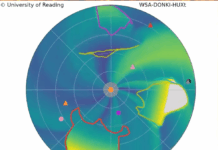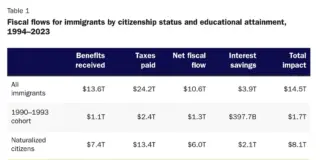From dgtlinfra.com:
Cellular towers are critical for the 5G network to function properly – but who owns them?
Cellular towers are steel structures that typically range from 100 to 400 feet in height, that hold communications equipment, and broadcast frequencies for 5G. Indeed, these towers provide the core mobile network coverage for wireless carriers to provide 4G/LTE and now 5G services. However, people are less aware that the cellular towers in the United States are largely controlled by three publicly-traded companies.
Below, we provide a comparison of American Tower, Crown Castle, and SBA Communications. Indeed, these are the three largest cellular tower companies in the United States. Additionally, we discuss the equipment that is owned by the tower company, versus the equipment that is owned by the carrier (i.e., Verizon, AT&T, and T-Mobile).
United States Cellular Tower Companies – Operator Comparison
American Tower
The company trades on the New York Stock Exchange under the ticker AMT. Indeed, American Tower owns 40.6k towers in the United States, which represents 23% of the company’s total, of 179k towers globally.
Crown Castle
The company trades on the New York Stock Exchange under the ticker CCI. Indeed, Crown Castle owns 40.1k towers in the United States, which represents 100% of the company’s total. To clarify, this is because Crown Castle does not operate cellular towers internationally.
SBA Communications
The company trades on the Nasdaq under the ticker SBAC. Indeed, SBA Communications owns 16.5k towers in the United States, which represents 50% of the company’s total, of 32.7k towers globally.

Crown Castle’s Cellular Towers are the Most Urban
Crown Castle has the highest percentage of suburban and urban cellular towers, relative to peers American Tower and SBA Communications. Specifically, 62% of Crown Castle’s towers are located in the top 100 cities in the United States, as compared to American Tower at 45% of the top 100 cities and SBA Communications at 43% of the top 100 cities. For example, these top 100 cities include New York City, Los Angeles, Chicago, and Houston.
Overall, Crown Castle’s cellular towers are located in more urban and suburban environments, which is particularly important for 5G. Whereas American Tower and SBA Communications are more skewed towards rural environments. Therefore, initial C-Band deployments, for mid-band 5G, may also disproportionately favor Crown Castle’s more urban tower portfolio.
Countries of Operation – by Cellular Tower Operator
American Tower
The company operates in 20 different countries around the world. Specifically, American Tower’s six largest markets by number of towers are the United States, India, Brazil, Mexico, Colombia, and Nigeria.
Crown Castle
The company only operates in the United States. Furthermore, Crown Castle has publicly-stated that it is currently not interested in expanding internationally.
SBA Communications
The company operates in 10 different markets. Specifically, SBA Communications’ significant markets include the United States, Brazil, and South Africa.
Key Tenants – by Cellular Tower Operator
A tower company’s customer base primarily comprises the largest wireless carriers in the countries that it operates in. Even though American Tower, Crown Castle, and SBA Communications operate outside the United States, the U.S. carriers still comprise the majority of their overall revenue.
American Tower
The company’s three largest tenants are AT&T (19% of revenues), T-Mobile (18% of revenues), and Verizon (14% of revenues).
Crown Castle
The company’s three largest tenants are T-Mobile (35% of revenues), AT&T (22% of revenues), and Verizon (18% of revenues).
SBA Communications
The company’s three largest tenants are T-Mobile (40% of revenues), AT&T (32% of revenues), and Verizon (19% of revenues).
Tenants per Tower (United States) – by Cellular Tower Operator
Overall, the United States has 154k towers, with a 2.3x tenancy ratio, equating to 354k tenants. Importantly, American Tower, Crown Castle, and SBA Communications host a significant portion of all the tenants in the United States.
American Tower
The company has a 2.6x tenancy ratio, equating to 106k tenants on its 40.6k towers in the United States.
Crown Castle
The company has a 2.1x tenancy ratio, equating to 84k tenants on its 40.1k towers in the United States.
SBA Communications
The company has a 2.1x tenancy ratio, equating to 35k tenants on its 16.5k towers in the United States.
With tenancy ratios above 2.0x on average, this means that many of the cellular tower companies have 2 to 3 tenants on each of their towers. In turn, this means that a combination of AT&T, Verizon, and T-Mobile all place their equipment on the same towers, since they are the primary tenants in the United States. Indeed, cellular tower tenancy ratios are expected to increase further as 5G requires further densification of tenants on towers.
Digital Infrastructure Owned by the Tower Companies
Digital Infrastructure is the physical link driving 5G connectivity as Internet traffic, mobile data traffic, and data storage needs increase. Specifically, the four sectors of digital infrastructure, include towers, data centers, fiber, and small cells & distributed antenna systems (DAS). Indeed, American Tower and Crown Castle also have part of their operations in adjacent digital infrastructure sectors.

American Tower
The company owns ~500 distributed antenna system (DAS) networks and 1,774 DAS nodes. Specifically, 407 of these DAS nodes are in the United States, 1,079 of these DAS nodes are in India, and 231 of these DAS nodes are in Latin America, with the remainder being in Africa and Europe.
Crown Castle
The company owns 80k route miles of fiber and ~48k small cells on-air.
SBA Communications
The company owns no material assets in these other sectors. Indeed, SBA Communications is the most pure-play tower company of the three.
What Does the Carrier and Tower Company Own?
While the cellular tower asset may seem like a simple steel structure that is owned by American Tower, Crown Castle, and SBA Communications, it is actually more complex. Specifically, the cellular tower consists of both active and passive infrastructure, which work together to allow services like 5G to function.
A carrier, (i.e., Verizon, AT&T and T-Mobile) owns the active infrastructure to broadcast frequencies, including those of 5G. Whereas a tower company, (i.e., American Tower, Crown Castle, and SBA Communications) owns the passive infrastructure, to host this carrier equipment, including 5G antennas and radios.
Below, we discuss some of the distinctions between the two types of infrastructure using American Tower and Verizon as examples.
Active Infrastructure vs. Passive Infrastructure
Tower sites operated by a Tower Company (American Tower) tend to be macro sites. Indeed, these are large physical cellular towers, independent of a building, housing “macro cells”.
The Tower Company (American Tower) typically has ownership of the physical infrastructure of the tower site. Specifically, this ownership includes the land & any ground leases, the physical tower (excluding electronics & cabling), on-site shelters for equipment (such as baseband units) and the provision of energy access to the sites, including a back-up generator for continuous operation.
The Carrier (Verizon) will lease space at a site to place its electronic equipment, including antennas and baseband units. Indeed, this lease contract will also have an agreement for power to the tower site.
The Tower Company (American Tower) leases space on these cellular towers to the Carrier (Verizon) through long-term agreements (i.e., 10 to 15 years) for hosting their equipment. Indeed, these leases consist of providing the Carrier (Verizon), which is a tenant, vertical space on a cellular tower and portions of the land underneath for their equipment.
As it relates to 5G, American Tower owns the “passive Infrastructure” component of the cellular tower. Whereas, Verizon owns and manages the “active infrastructure” on the cellular tower needed for 5G services.

Active Infrastructure Owned by the Carrier (above pink) Includes:
#1-4: tower antenna, #5: radio link (transport), and #6: feeder (coaxial cable).
Passive Infrastructure Owned by the Tower Company (above dark blue) Includes:
#7: mast, #8: shelters, #9: generator, and #10: land and ground.
More specific examples for both active and passive infrastructure are shown above, on the right.
Disclaimer: We at Prepare for Change (PFC) bring you information that is not offered by the mainstream news, and therefore may seem controversial. The opinions, views, statements, and/or information we present are not necessarily promoted, endorsed, espoused, or agreed to by Prepare for Change, its leadership Council, members, those who work with PFC, or those who read its content. However, they are hopefully provocative. Please use discernment! Use logical thinking, your own intuition and your own connection with Source, Spirit and Natural Laws to help you determine what is true and what is not. By sharing information and seeding dialogue, it is our goal to raise consciousness and awareness of higher truths to free us from enslavement of the matrix in this material realm.
 EN
EN FR
FR


























